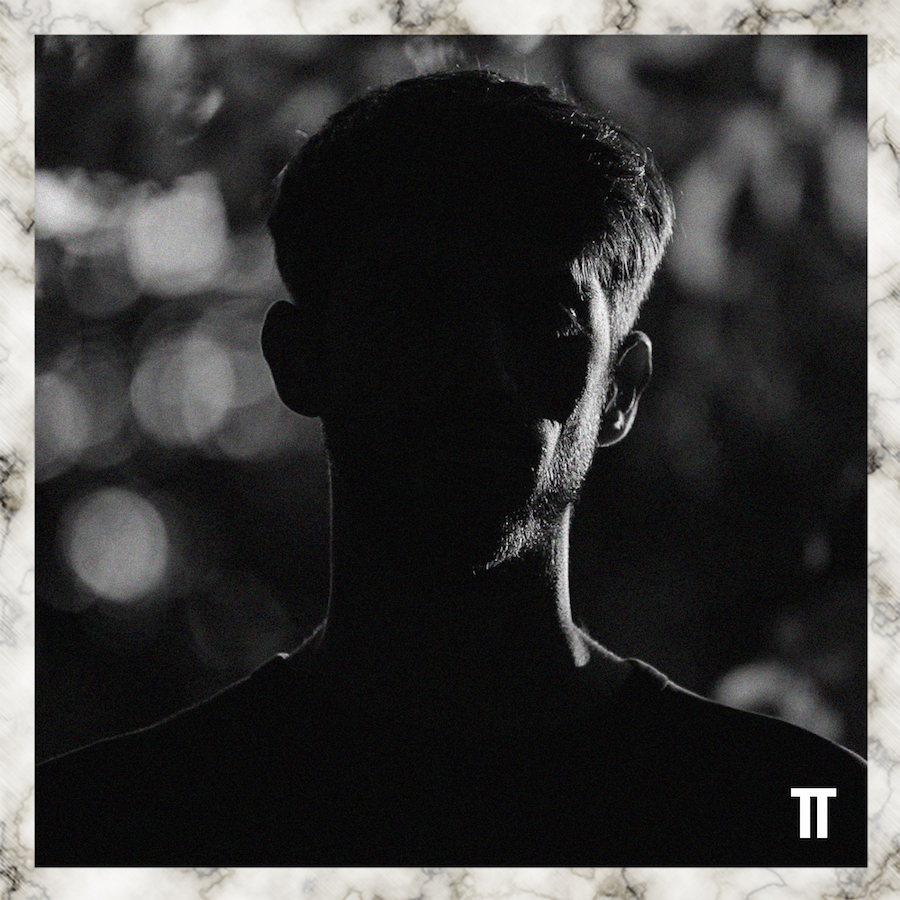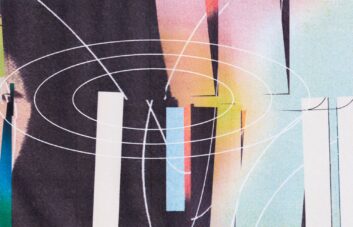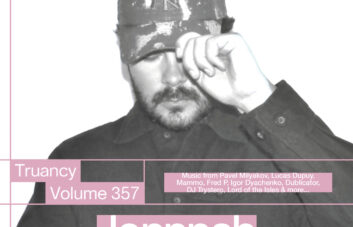Joe well and truly had the wind in his sails just a few years back, quietly building up an impressive discography on the likes of Hemlock Recordings and Hessle Audio – pretty much UK royalty. Critical praise was heaped on his DJing too, his FACT mix still very much holding up today. Although his release schedule had always been somewhat irregular, in late 2013 he seemed to take a step back into the shadows completely. Two years later, he popped his head above ground to drop an edit of Bobby McFerrin that would soundtrack hundreds of festival sets that summer before he vanished once again. While sporadic use of his Twitter account signalled that the project wasn’t quite over, it would be four years before Joe returned to releasing original pieces of music.
The announcement of new records on Hessle Audio always feels like an event in itself, but when they revealed that new material from the modest maestro was on the cards, a certain corner of the community rejoiced. While his music has aged well in the time he spent away – “Slope” still serving as a crescendo moment in DJ sets across the board – such a reception to the news is proof that absence only made the heart grow fonder in this case. Here at Truants, we were bowled over to find out that Joe was game for a Truancy Volume. To go alongside his genre-hopping, rip-roaring medley of a mix, we caught up with him to discuss his approach to making music, the influence of film in his work and everything he’s been upto in the time between.
Hi Joe, how are things going with you? “Things are going fine, thanks. I’m just getting into the swing of DJing again, and finding the balance between working on that and studio time. How about with you?”
I am very well thank you, really excited to hear what you’ve got for us in this mix! I saw that you posted on Facebook about your recent gig in Sheffield, saying that it was the first time you had played out in three years. How did it feel to be behind the decks in public again? “Really good. I couldn’t’ve hoped for a better first gig back. The rest of the lineup was great (DJ Sprinkles, rRoxymore, Virginia, Objekt), the room was small, dark and loud, the crowd were receptive, and the promoters were very nice and organised!”
Have you been clubbing much yourself lately? What was the last great moment you had in a club and where was it? “Not enough! Some memorable recent experiences were actually at festivals. At Freerotation I really enjoyed rRoxymore, Gwenan and Bambounou. At Dekmantel, Call Super and Objekt’s closing set on the Selectors stage was particularly fun. A standout club moment was Midland b2b Pariah at the Dance With Pride fundraiser for Project Queer Welfare. This was on the Saturday night after Dekmantel at a small, out of the way and now-closed venue called Kondo that seemed pretty special. I’m really grateful I got to see it (thanks Ahmed and Aura!)
“Most of the clubbing I do is in London, and even though it’s common to bump into people I know at a venue, I often go out alone. At those festivals I was dancing with friends which – surprise – was really fun. It’s a different kind of fun. :)”
What have you been doing outside of music in these last three years? “In 2014-16 I was studying (something unrelated to music, though it could potentially feed back in at some point). When I started studying I thought I’d be able to do at least a little music at the same time, but that quickly turned out to be pretty difficult. So I committed to the studies and basically didn’t do any music until the start of this year. It was a bit risky to take that much time away from music, but I’m really glad to be coming back to it. It turns out that stepping away was quite motivating, and hopefully this refreshed feeling will last for a while.”
Your music isn’t easy to contextualise with the music your peers have been making before its release. Is distinguishing yourself from other producers something you aim to do in particular? What are your listening habits like during your creative process? “Stylistically speaking, I try to work with ideas that I don’t feel I’ve heard lots of. But it’s hard for me to know if I’m distinguishing myself, exactly, because I don’t listen to that much (new?) club/dance music. (At least, I don’t think I do.) When I’m doing work that doesn’t require sound (like email), I put the radio on in the background (like NTS, Red Light, Reprezent, or Point Blank when I remember – credit to Zofia for showing me that one). Occasionally it’ll be a mix (like Dream Chimney, Test Pressing, or something a friend has made). The rest of the time, if I’m not working on my own music, I’m checking tunes in the context of, ‘can I play this out?’ A lot of that is skipping through stuff I don’t know. So overall, it’s hard to say I really listen to that much music at all. Maybe this is unnecessarily splitting hairs about what it means to ‘listen’, but most of what I hear is in the background, to an extent.
“Every now and then, of course, something grabs my attention. I’ll turn the volume up, and try to find out what it is. Some of these tunes I’ll end up listening to a lot and get really attached to. At that stage, I probably end up ‘properly listening’: taking notice of details, wondering how something was done, thinking about the changes, whatever.
“This surely influences the music I’m making. Sometimes it might be subconscious, but it can be very intentional. I usually think of this like taking influences from (maybe) disparate sources and trying to make them work together. To take a crude example, if I’ve been listening to some Brazilian jazz fusion, I might wonder: can I take some elements from this genre and fit them with soundsystem/club-friendly drums and sub – and make it not awful?! That might sound quite functional and unromantic. That’s probably because it is! The inner workings of things can be pretty mundane. But hopefully there’s still something intriguing and entertaining about the results. Having said all that, one of the most inspirational things is probably hearing good stuff in a club.”
This also points to a wider detail about your discography, that you have tried your hand at a broad range of different styles. Is this simply a result of natural growth or do you find yourself getting tired of making certain genres quickly? “In the studio I definitely feel the need to try different things (styles, sounds, tempos, moods, etc.) quite a bit to keep myself motivated and interested. But I wouldn’t say that’s necessarily separate from ‘natural growth’. (What is ‘natural’, and what’s it in opposition to?)”
I’ve noticed film samples in your music. Instances include dialogue from a Paul Thomas Anderson film and a scratchy noise in the background of a Coen Brothers movie plays a central part in one of your tracks. Firstly, are you a big film fan? Furthermore, I am fascinated by the creativity behind hearing the noise in the Coen Brothers film and choosing to use it as the foundation for a song. Could you talk us through that inspiration and process? “From the age of about 14 to 19 I was really into films: watching them, picking them apart, and trying to make them with friends. I mostly worked on technical aspects like camera, editing and sound. Then, pretty quickly, I got out of it and spent much more time working on music. I had been dabbling with music stuff for a bit but decided I now wanted to try it ‘seriously’ (which I guess at the time meant trying to finish stuff I actually thought was half-decent). Since then, I rarely watch films. I still think they’re pretty interesting cultural objects, though. For example, all the different skills involved and people working on them to try and produce an effective/coherent piece of entertainment.
“In terms of sampling, I basically try to keep an archive going which contains roughly-organised snippets of things from anywhere: music, film, TV, radio, stuff I hear when I’m walking about, etc. Sometimes I’ll remember one of those sounds in particular and think it has potential. Often it’ll turn out that the ones I thought had potential just won’t work in a tune. But when I’m working on something I’ll sometimes flick through these samples with the tune playing just to see if anything sounds like it’ll fit. Other times, I’ll start off a project by looping/editing a sample, and just see what it suggests.”
The majority of your releases have come on the canonical UK labels Hessle Audio and Hemlock. What is it about these two labels that have made you have such close relationships with them? “I think having good personal relationships with the people who run them, them being organised, and that it seems to work well for both parties (i.e. it’s complimentary in a creative sense, and in terms of finding an audience for the music).”
As far as I am aware, the B-side of your recent Hessle release, “MPH”, first came to wider attention after Joy O’s Essential Mix in 2014, but had been unidentified for about three years! Why did you decide to give Joy O the music to premiere in that mix before sitting on it for so long afterwards? “In a not particularly structured way, I try and share music that I’ve finished (or basically-finished) with a fairly small number of people that might have the opportunity to play it out. This is useful to get feedback from them, and it’s motivating for me to know that my music is reaching dancers. Generally I would try to avoid a gap this long between the music getting played out and it being (potentially) released. In this case, it took a while because I didn’t immediately have anything obvious to pair it with for a 12″, and then I started studying which took time away from music. In other words, the wait wasn’t intentional. But I’m glad that it’s finally out there.”
Your music having been ‘out there’ before you’d taken credit for it gave me some fond memories of listening to dubstep shows on the radio where DJs would take great pleasure in giving away zero information on whatever fresh dubs they had their hands on. Is this something you are fond of and are there anymore unclaimed Joe tracks floating around in the ether? “I can see the pleasure in not knowing what something is, being desperate to find out, and then finally finding out. I probably experienced this in the dubstep days. Back then, for me, I think it was more likely to find out an ID but for the track to never be released. That’s a bit disappointing in a way, but I suppose that’s how it goes. I still get it from time to time now, though these days it’s more likely to be an old record which is hard to find or expensive.
“I understand why some DJs might want to keep some IDs secret, at least for some time. (The prices of out-of-print records can be one reason.) But as a DJ, it’s something I tend to avoid. There’s so much good music out there, ‘rare’ and not, and so little time really to try and take it all in, that I’d rather share what I know than keep it secret. Unless I’ve forgotten something, I don’t think there are any other Joe tracks waiting to be ID’d on YouTube. ;)”
Finally, are there any future plans you are prepared to inform us about? “Yes, some upcoming DJ gigs!”
Saturday 11 November: Atom Funk, Club 43, Northampton
Friday 17 November: Inner Totality Family, Ormside Projects, London
Saturday 2 December: Pretty Pretty Good, The Island, Bristol
Saturday 16 December: Don’t Be Afraid, The White Hotel, Manchester
Thanks for your time. “Thanks for yours, and thanks for having me to do a mix!”
Joe is happy to receive requests for specific IDs via Twitter at @joemakemusic.
Joe: Facebook, Soundcloud, Twitter, Resident Advisor, Discogs



